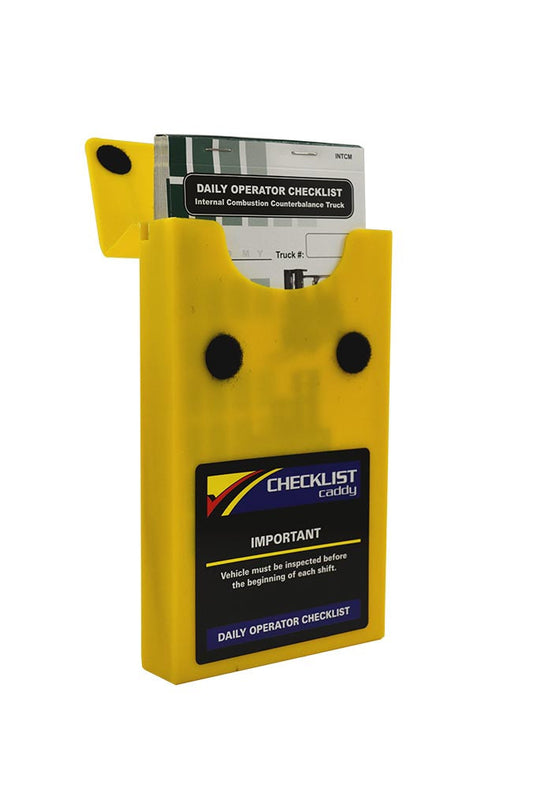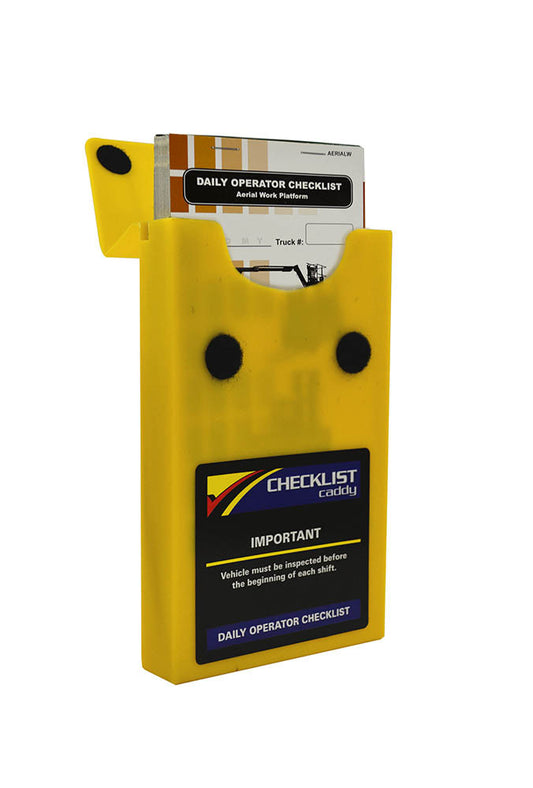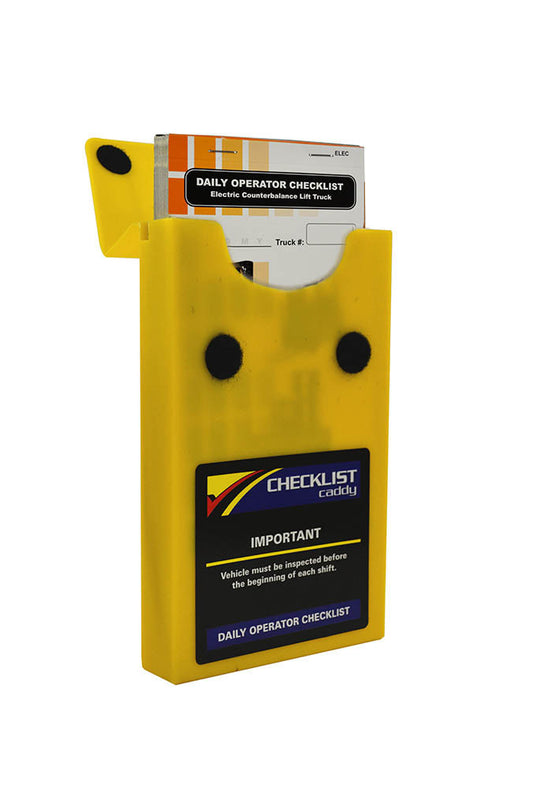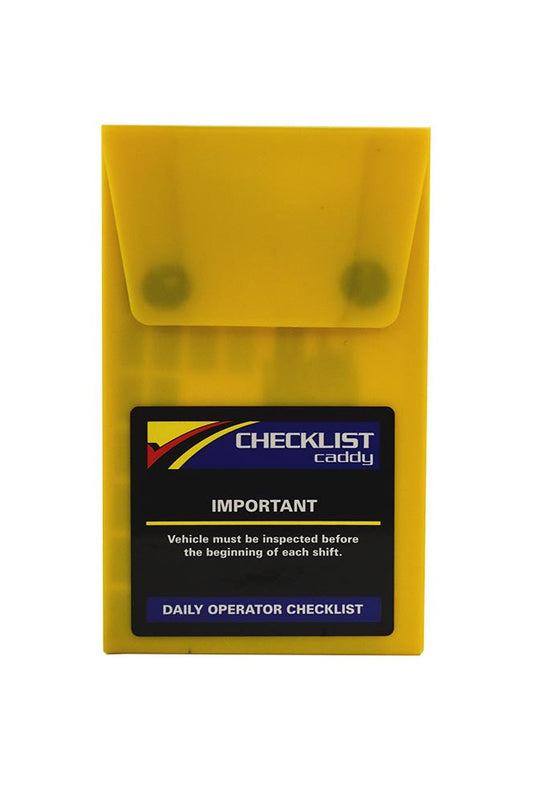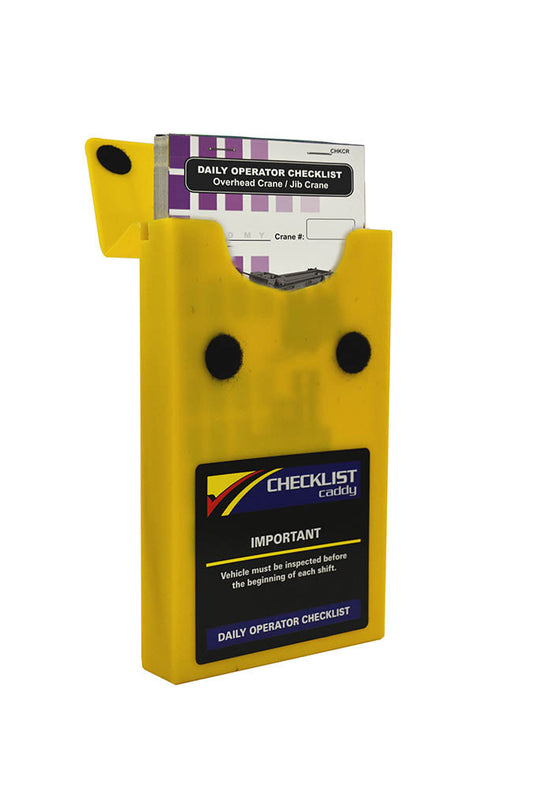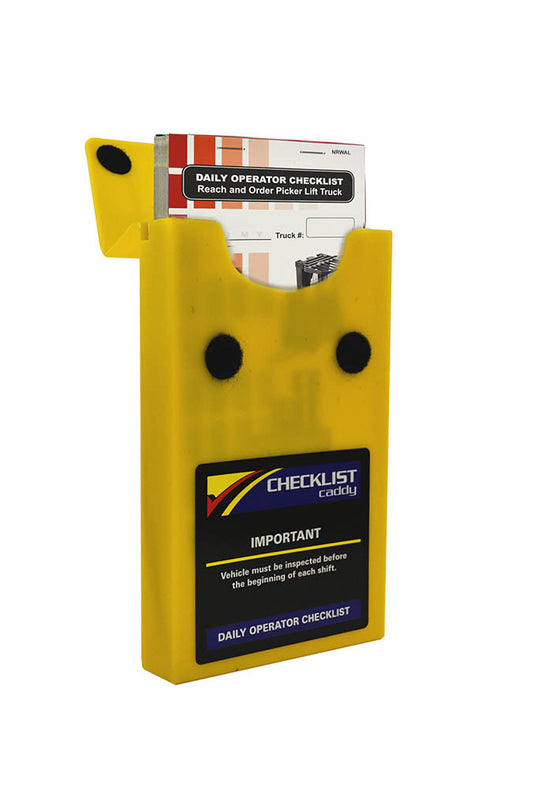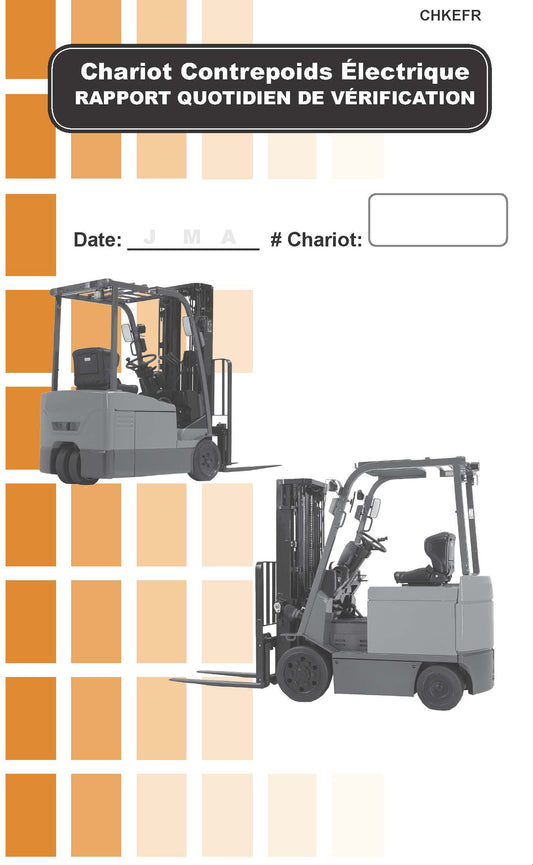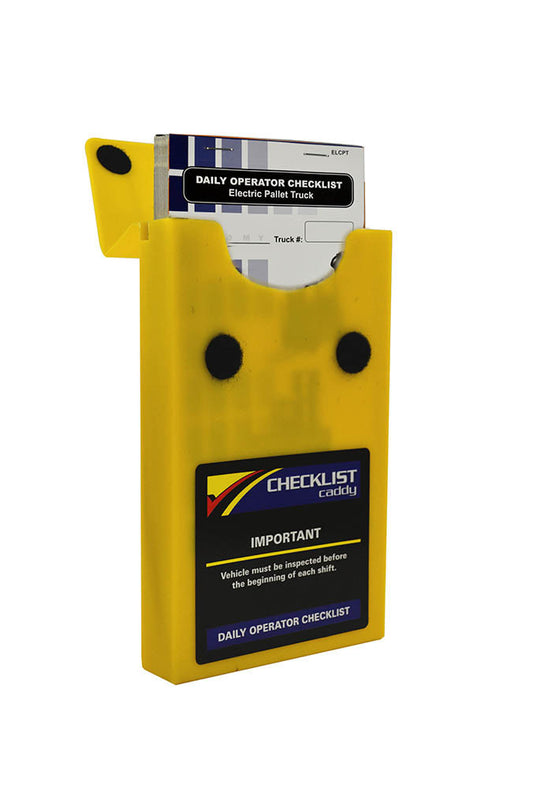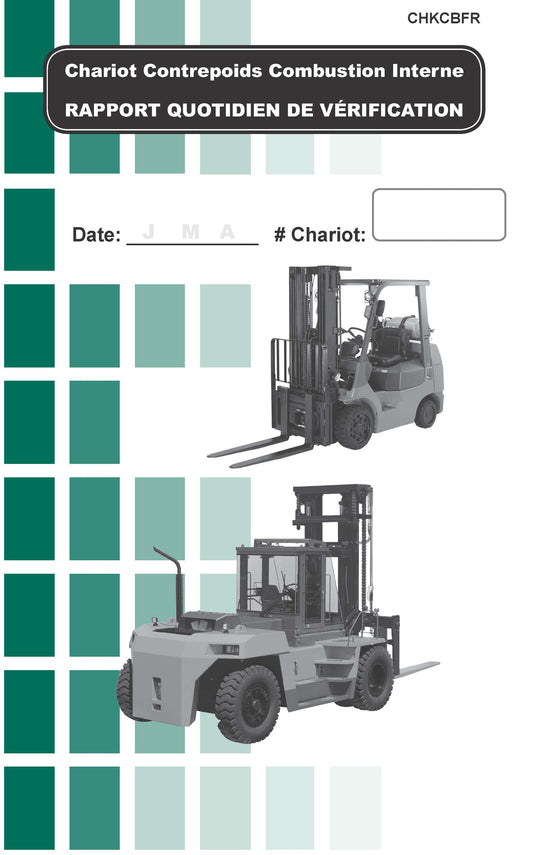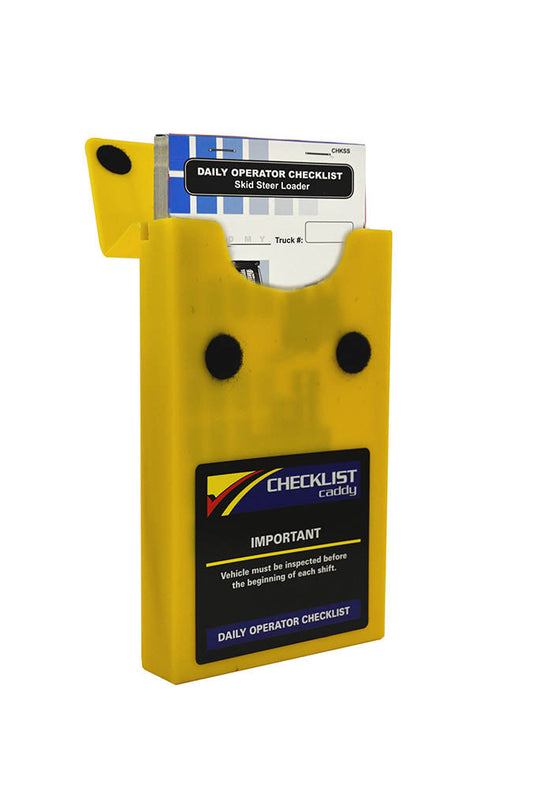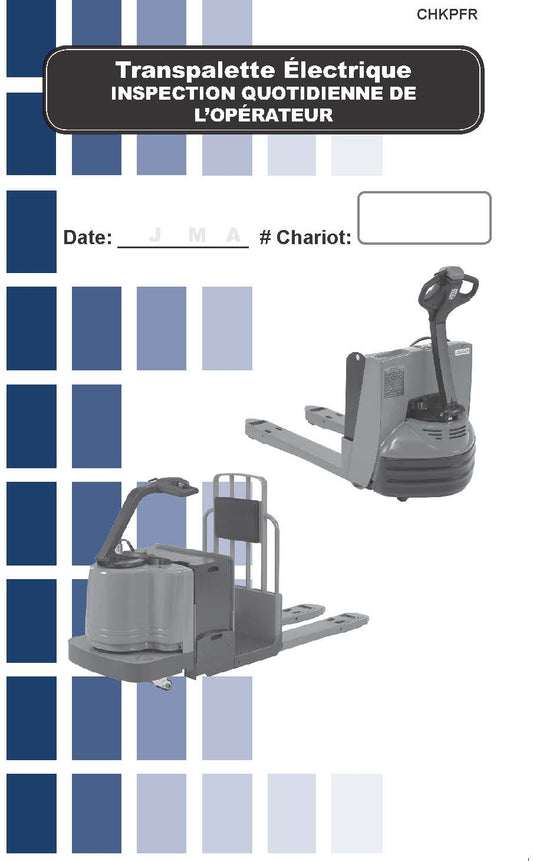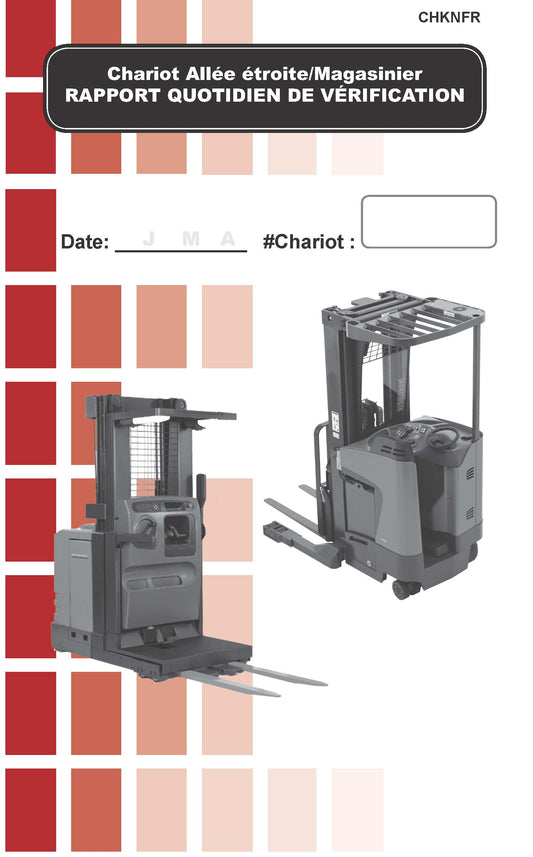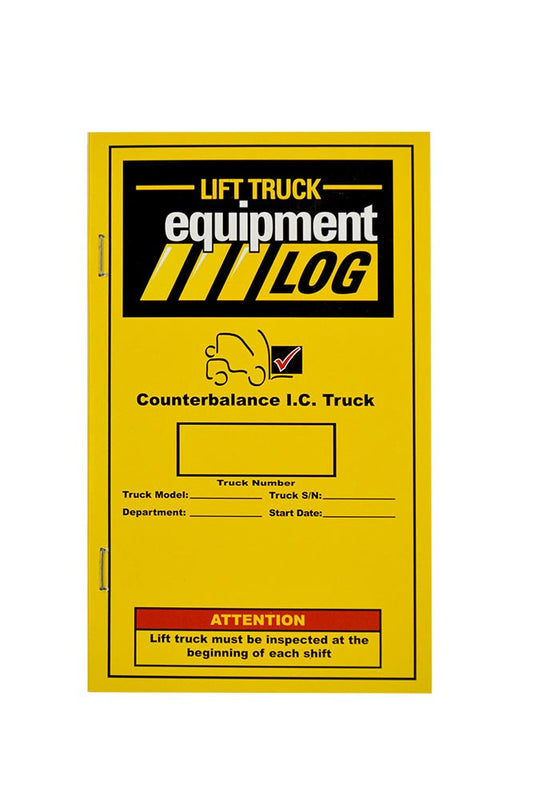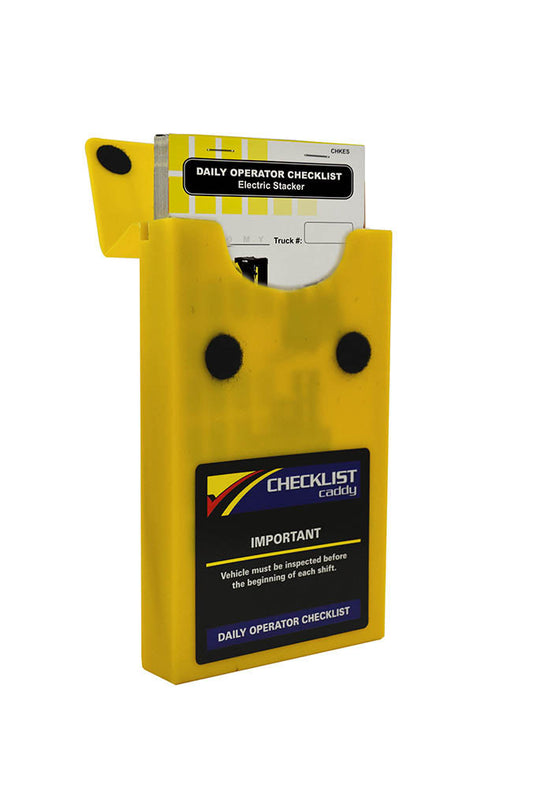-
Internal Combustion (Propane) Counterbalance Truck - Replacement Log # CHKCB
Regular price $14.90 CADRegular priceUnit price per -
Electric Counterbalance Lift Truck - Replacement Log # CHKE
Regular price $14.90 CADRegular priceUnit price per -
Reach and Order Picker (Narrow Aisle) Lift Truck - Replacement # CHKN
Regular price $14.90 CADRegular priceUnit price per -
Mobile Elevated Work Platform - Replacement Log # CHKA
Regular price $14.90 CADRegular priceUnit price per -
Electric Pallet Truck - Replacement Log # CHKP
Regular price $14.90 CADRegular priceUnit price per -
Internal Combustion (Propane) Counterbalance Truck + Checklist Caddy # SCADD(CB)
Regular price $39.00 CADRegular priceUnit price per -
Overhead Crane / Jib Crane - Replacement Log # CHKCR
Regular price $14.90 CADRegular priceUnit price per -
Mobile Elevated Work Platform + Checklist Caddy # SCADD(A)
Regular price $39.00 CADRegular priceUnit price per -
Electric Counterbalance Lift Truck + Checklist Caddy # SCADD(E)
Regular price $39.00 CADRegular priceUnit price per -
Caddy (Poly Plastic) # ELOG(E)
Regular price $25.00 CADRegular priceUnit price per -
Overhead Crane / Jib Crane + Checklist Caddy # SCADD(CR)
Regular price $39.00 CADRegular priceUnit price per -
Fork Lift Truck Maintenance Log Book #1299
Regular price $22.00 CADRegular priceUnit price per -
Reach and Order Picker (Narrow Aisle) Lift Truck + Checklist Caddy # SCADD(N)
Regular price $39.00 CADRegular priceUnit price per -
Electric Stacker - Replacement Log # CHKES
Regular price $14.90 CADRegular priceUnit price per -
Skid Steer Loader - Replacement Log # CHKSS
Regular price $14.90 CADRegular priceUnit price per -
Chariot Contrepoids Électrique - carnet de listes de vérification d'inspection # CHKEFR
Regular price $14.90 CADRegular priceUnit price per -
Electric Pallet Truck + Checklist Caddy # SCADD(P)
Regular price $39.00 CADRegular priceUnit price per -
Chariot Contrepoids Combustion Interne - carnet de listes de vérification d'inspection # CHKCBFR
Regular price $14.90 CADRegular priceUnit price per -
Crane Operator Log Book #1014
Regular price $45.00 CADRegular priceUnit price per -
Skid Steer Loader + Checklist Caddy # SCADD(SS)
Regular price $39.00 CADRegular priceUnit price per -
Transpalette Électrique - carnet de listes de vérification d'inspection # CHKPFR
Regular price $14.90 CADRegular priceUnit price per -
Chariot Allée étroite et Magasinier - carnet de listes de vérification d'inspection # CHKNFR
Regular price $14.90 CADRegular priceUnit price per -
Counterbalance Internal Combustion (Propane) Truck Log - Replacement # RLOG(CB)
Regular price $37.00 CADRegular priceUnit price per -
Electric Stacker + Checklist Caddy # SCADD(ES)
Regular price $39.00 CADRegular priceUnit price per
Using a Fork Lift Log Book

The Importance of Forklift Logs
Forklift/ Lift truck safety should never be overlooked. Here are a few key reasons why using an inspection sheet is vital for your workplace:
- Compliance with OSHA Regulations: A forklift/ lift truck checklist ensures that you remain compliant with the Occupational Safety and Health Administration (OSHA) regulations concerning forklift inspections and safety. Non-compliance can not only risk the safety of your operators but may also lead to inspections, fines and even litigation.
- Reduced Workplace Injuries and Fatalities: Proper forklift / lift truck inspections help identify potential safety concerns or equipment malfunctions before an accident occurs.
- Boosted Operational Efficiency: A forklift / lift truck in poor condition can lead to increased downtime, costly repairs, and even accidents. An inspection log ensures that every lift truck in your fleet undergoes a thorough inspection so you can quickly identify and address any maintenance or operational concerns. Ultimately, this improves your operational efficiency.
Not sure where to start?
We are here to help!








